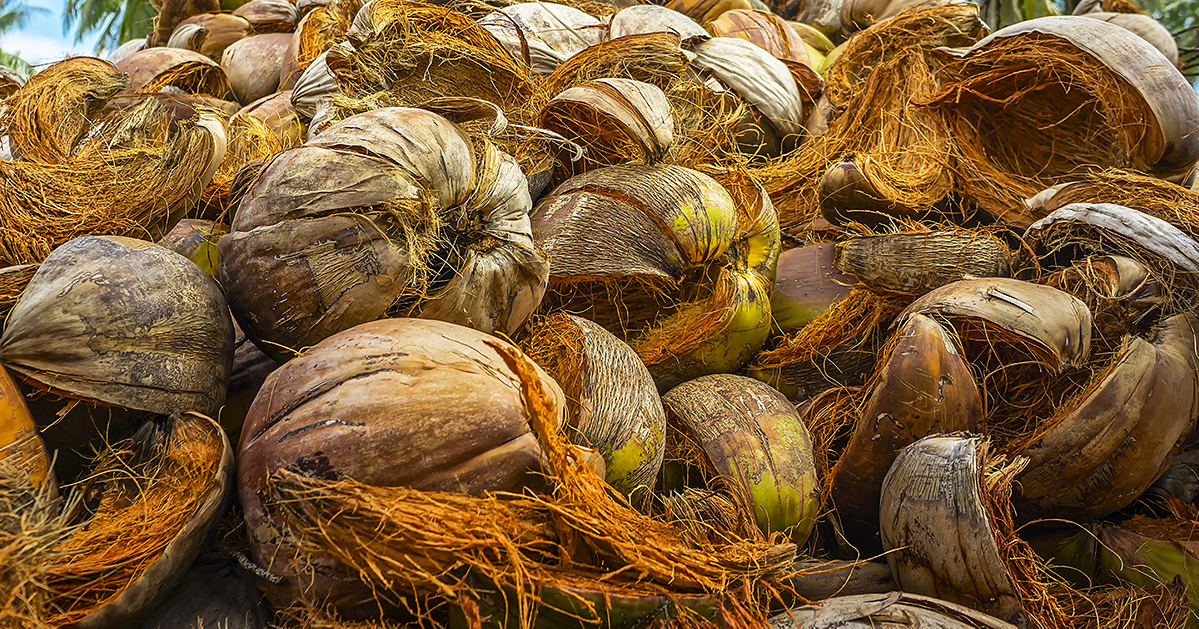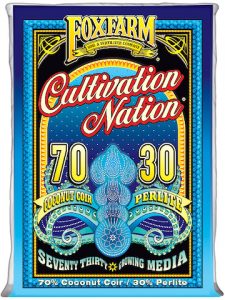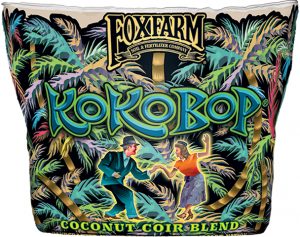Whether we are growing with soil or substrates, the FoxFarm family is passionate about what we do. Since founding the business in the 1984, we’ve poured our love and energy into some of the best cultivation mediums on the market, and coco coir is an integral part of that journey.
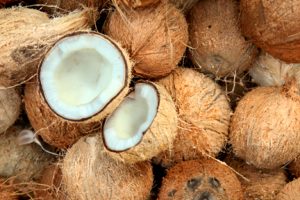
As you start learning more about growing, it opens up a whole new world of possibilities. It doesn’t matter if you are a newbie gardener or veteran grower, a better understanding of soil and substrates will help sharpen your skills. FoxFarm is here to walk you through the ins-and-outs of coco coir so you can use this amazing input to boost production.
What Exactly is a Coco Coir Substrate?
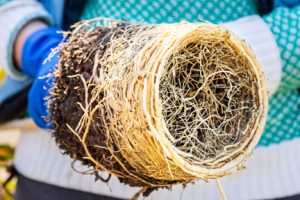
Coco coir is a growing media made from the husks of coconuts. The history of coco coir is fascinating, as it was originally considered a waste byproduct of coconut farming. In the beginning, coconuts were only grown for their edible interior. However, people came to realize the husks on the outside of coconuts are also quite useful.
Often, growing media such as coco coir are used in place of soil and peat moss. Substrates give plants a supportive medium within which to grow and expand their roots. In their rawest form, soilless substrates like coconut coir do not contain any nutrients, so they are considered “inert.” However, coco coir is sometimes mixed with amendments like bat guano to make blends like our FoxFarm KO KO BOP®.

Hydroponic growers are drawn to raw, inert coco coir because it gives them precision control over their watering schedules. To be successful, hydro growers create nutrient mixes within very specific ranges of pH, PPM, and EC. To do so, they must use inert substrates which don’t cause fluctuations with these important readings.
With a pH reading of 7, coconut coir is considered “pH neutral.” As such, using raw coco coir as a hydroponic substrate will not influence the pH of your irrigation water. For this reason, coco coir is the ideal substrate to use with a feeding schedule such as FoxFarm’s Cultivation Nation® 3-part Feeding Schedule.
Aeration & Water Retention
Aeration and water retention are some of the most impressive qualities of coco coir. By combining these important characteristics, coco coir has taken the hydroponics industry by storm.
When used in a hydroponics setup like a flood table, you have to worry less about your substrate drying out between cycles. To get a better feel for the consistency of coco coir, FoxFarm recommends checking out our Cultivation Nation® Seventy Thirty Growing Media.
Coco coir balances water absorption capabilities with amazing breathability. Coco coir allows air to penetrate deep into the root zone of your plants. In turn, this breathability helps reduce the chance for diseases like root rot, while also supporting overall plant growth.
Coco Coir & the Environment
While the practicality of coco coir is amazing in itself, the environmental benefits of this ingredient are even more impressive. While we love growing huge plants, FoxFarm is always looking for ways to do our part and be better stewards of our planet. This simple fact makes us big supporters of coco coir.
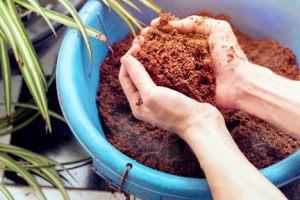
As we stated earlier, coconut husks are a byproduct of coconut production. In fact, the coco coir industry is built entirely on a product previously thought to be waste. When FoxFarm makes coco coir blends, we procure this raw material for use in our high quality products.
Another environmental benefit of coconut coir is that it is biodegradable. Home growers and commercial producers alike can use large amounts of coco coir without concern for how to dispose of it later. In fact, you can compost the material after use if you so desire.
What is Coco Coir Made Of?
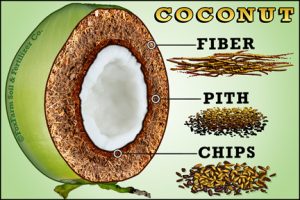
Coco coir is made from a few different parts of the coconut husk. The three primary parts of the coconut husk are the pith, fiber, and chips. These materials are used in a variety of consumer products such as soil amendments, top dressings, floor mats, rope, brushes and fishing nets. Who knew coconuts had so many uses!
The pith of the coconut husk is comprised of extremely fine material. Coconut pith is responsible for the water retention abilities of coco coir. Please note: coconut pith is not used as a stand-alone cultivation medium because it does not drain well.
Coconut fiber is the long, stringlike material that encompasses coconut husks. This fiber is extremely strong, yet it does not absorb water. As such, coconut fiber is responsible for giving coco coir its aeration qualities.
Coconut chips are exactly what they sound like – chunks of coconut husks that resemble wood chips.
At FoxFarm we use a combination of coconut fiber and pith in our growing media products, taking advantage of both water retention and aeration at the root zone.
While many of FoxFarm’s coco products combine coco coir with soil, our Cultivation Nation® Seventy Thirty Growing Media is a fantastic option for growing without soil. Seventy Thirty contains a blend of coco coir and perlite in a ratio of 70:30.
Coco Coir Blends
At FoxFarm, we have worked diligently to develop coir blends that bring out the best attributes in both soil and coco coir growing systems. We are proud to have introduced the beauty of coco coir substrates to soil growers.
By mixing coco coir with amendments like earthworm castings, you add nutrients to the otherwise raw, inert substrate. The idea behind coco coir mixes is to keep the water retention and aeration qualities of the substrate, while complementing it with ingredients found in soil.
Bush Doctor® Coco Loco® Potting Mix is one of our premier coco coir mixes. This coco soil blend has the same consistency as coco coir, yet includes the soil microbes that have made FoxFarm famous.
FoxFarm KO KO BOP® features a blend of coco coir and aged forest products. KO KO BOP® is conveniently sold in a 3 cubic foot grow bag, so all you need to do is cut the top, poke holes in the bottom, and plant your crop.
Used on its own or in a blend, coco coir is a highly significant growing media. Hydroponic growers love coco coir because it gives them precision control over important factors like pH, PPM, and EC. Soil growers celebrate coco coir blends for their water retention capabilities, as well as their quality nutrients. Whatever your flavor, coco coir is an amazing material that not only works great in the garden, but is also a feel-good choice for the planet.
If you have any questions, please give us a call! Our Product Support Team can be reached at (707) 443-4369 or cu*************@*****rm.com. May the Fox Be With You!

